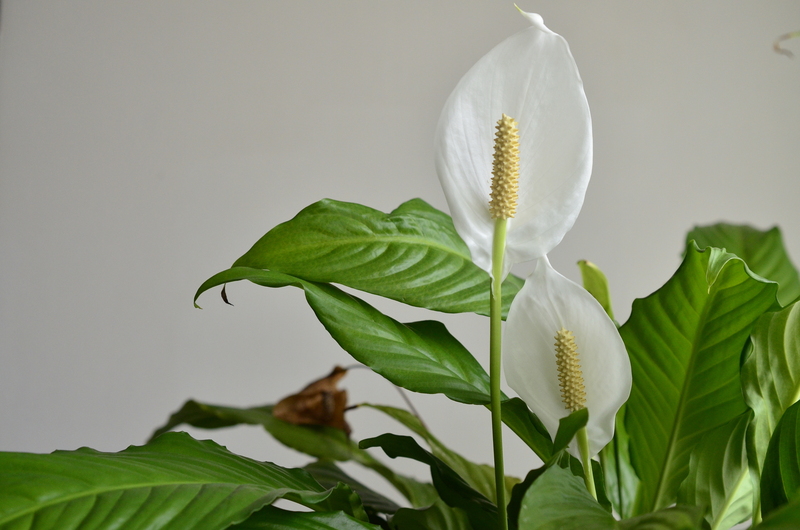Conquer Weeds Effortlessly with These 3 Tips
Posted on 17/08/2025
Conquer Weeds Effortlessly with These 3 Tips
Are weeds taking over your beautiful lawn or garden? Have you tried different solutions without much success? You're not alone. Weeds rank among the top frustrations for gardeners and homeowners, as these invasive plants compete with desirable plants for nutrients, water, and sunlight. If left unchecked, they can ruin the aesthetics and health of your outdoor spaces. Luckily, conquering weeds effortlessly is possible--if you use the right approach!
In this comprehensive and SEO-optimized guide, you'll discover the top three proven tips to get rid of weeds easily. By the end of this article, you'll not only know how to eliminate pesky weeds, but also how to prevent them from returning, ensuring your landscape remains lush and pristine all season long.
Why Is Weed Control Essential?
Before we delve into effective weed-fighting strategies, it's essential to understand why weed control is so important for your garden or yard:
- Competing for Resources: Weeds aggressively compete with your chosen plants for water, nutrients, and sunlight, stunting their growth.
- Harboring Pests and Diseases: Many weeds serve as hosts for harmful insects and plant diseases that can spread to your vegetables, flowers, or lawn.
- Reducing Curb Appeal: A garden infested with weeds looks untidy and can diminish your property's value and visual appeal.
- Seed Proliferation: Weeds reproduce rapidly; a single weed allowed to go to seed can start a new generation of problems.
With these consequences in mind, it's easy to see why knowing how to conquer stubborn weeds effortlessly is crucial for both novice and experienced gardeners.

Tip 1: Outcompete Weeds with Proper Mulching
Why Is Mulching So Effective Against Weeds?
One of the simplest and most environmentally friendly ways to suppress weed growth is by using mulch. A thick, well-applied layer of mulch can effectively block sunlight, which weeds need to sprout and thrive. Mulching is an indispensable technique if you want to conquer unwanted weeds easily without resorting to harsh chemicals.
How to Mulch for Maximum Weed Control
- Choose the Right Mulch:
- Organic mulches (such as shredded bark, compost, straw, or wood chips) enrich your soil as they break down.
- Inorganic mulches (like gravel, landscape fabric, or rubber) are durable and offer long-term weed suppression.
- Prepare the Area: Remove weeds and loosen the soil before applying mulch. This prevents existing weeds from persisting under the mulch layer.
- Apply Sufficient Thickness: Spread mulch evenly in a layer at least 2-4 inches thick to block sunlight and discourage weed germination.
- Leave Space Around Plants: Keep mulch a few inches away from plant stems or tree trunks to prevent rot and allow air circulation.
- Maintain and Refresh: Replenish mulch yearly as it decomposes or thins, ensuring consistent coverage for ongoing weed suppression.
Pro tip: For large areas, try using biodegradable landscape fabric beneath your mulch to boost weed prevention even more.
Mulching Variations for Specific Weedy Problems
- Grass Weeds: Cardboard or newspaper under your mulch can smother grassy weeds like crabgrass or couch grass.
- Ornamental Beds: Decorative stones or gravel are low-maintenance for flowerbeds but reduce soil enrichment benefits.
In summary, a well-chosen mulch not only helps prevent weed seeds from sprouting but also conserves moisture, moderates soil temperature, and enhances the beauty of your garden beds.
Tip 2: Uproot Weeds Properly and Consistently
The Best Way to Remove Weeds by Hand
Nothing beats physically removing weeds from your yard when it comes to immediate gratification and lasting results. The key is to pull them out by the roots before they have the chance to drop seeds and multiply.
Techniques for Effective Weed Removal
- Pull After Rain or Watering: Moist soil loosens roots, making it easier to extract the entire weed without breaking it off and leaving bits behind.
- Use the Right Tools:
- Hand forks and dandelion diggers are ideal for deep-rooted perennial weeds.
- Weeding hoes and claws make quick work of shallow-rooted annuals.
- Remove Young Weeds: Address weeds promptly when they're small and before they flower and set seed.
- Dispose of Carefully: Do not compost weeds with mature seeds or invasive roots, as they may survive and spread in your compost pile.
For lawns, use a narrow weeding tool to pry weeds such as dandelions or plantain without damaging your turf. In flower or vegetable beds, loosen the soil around the weed and gently pull upward on the stem while disturbing as little surrounding soil as possible.
The Importance of Regular Inspections
Consistent monitoring is critical; weekly walk-throughs of your property help you spot new invaders early. Persistent, small efforts mean you'll never face overwhelming weed infestations, making the task of weeding your garden or yard effortlessly a realistic goal.
Considerations for Large-Scale Weed Outbreaks
- Mechanical Aids: For extensive outbreaks, flame weeders or string trimmers can clear ground quickly.
- Soil Solarization: Smother large weedy patches for several weeks with clear plastic in hot, sunny weather; this method uses solar heat to sterilize soil and kill weed seeds and roots.
Remember, the more you stay ahead, the easier it is to control weeds year after year.
Tip 3: Prevent Weed Germination with Smart Planting and Maintenance
How Dense Planting Chokes Out Weeds
Healthy, vigorously growing plants are your best allies in the battle against weeds. When you crowd out empty spaces, you deny weeds the light and open soil they need to get started. Strategic planting ensures there's barely any room left for weeds to take hold.
Effective Ways to Outcompete Weeds with Plants
- Choose Fast-Growing Varieties: Ground covers like creeping thyme, sweet woodruff, or vinca form dense mats that smother emerging weeds.
- Plant Closely: Tight plant spacing means plants' mature leaves will quickly shade the soil, further inhibiting weed growth.
- Cover Crops in Vegetable Gardens: Between main crops, sow quick-growing green manures such as clover, oats, or buckwheat to prevent weeds from establishing.
- Regular Feed and Water for Desired Plants: Well-fed, hydrated plants outpace weeds in growth and coverage, leaving little opportunity for weeds to sneak in.
Maintenance Practices That Keep Weeds at Bay
- Mow Lawns High: Set your mower blade to the highest or recommended setting for your grass type. Taller grass shades the soil, preventing weed seeds from germinating and reducing exposure to sunlight that weeds need.
- Don't Disturb Soil Unnecessarily: Every time you dig or till, you may expose dormant weed seeds to light, encouraging germination.
- Edge Garden Beds Regularly: Use mechanical or manual edging tools to create a clear barrier between lawns and planting beds, stopping grass and weeds from creeping in.
Proactive care doesn't just make your space look better--it ensures that even when weed seeds are blown in by wind or deposited by animals, they stand little chance of thriving in your well-managed environment.
Bonus: Natural and Alternative Weed Control Methods
Aside from the three main tips, there are several natural or alternative methods to help you control weeds easily--ideal if you want to minimize chemical use:
- Boiling Water: Pour boiling water directly onto weeds in driveways, walkways, or patio cracks. This kills most soft weeds instantly.
- Vinegar Sprays: Use strong horticultural vinegar (20% acetic acid) as a weed-killer spray for isolated patches. Warning: It's non-selective, so avoid desirable plants!
- Salt: Small amounts can be used to kill weeds in gravel or between pavers, but it will render soil sterile where applied--so use sparingly.
- Corn Gluten Meal: Acts as a natural pre-emergent, inhibiting root formation in germinating weed seeds when applied early in the season.
Are Chemical Herbicides Necessary?
Many home gardeners ask if chemical solutions are needed. While selective and non-selective herbicides are available, using strong cultural, physical, and mechanical techniques as described above greatly reduces reliance on chemicals. If you must use a herbicide, always follow manufacturer instructions and consider spot-treating only the areas of severe infestation.

Frequently Asked Questions About Effortless Weed Control
How often should I weed my garden?
Inspect your beds and lawns weekly. Frequent, small sessions prevent weeds from getting established and save you far more work in the long run.
Is there an effortless method to conquer weeds completely?
No method is fully "effortless," but by applying these three proven tips--mulching, proper removal, and preventative planting--controlling weeds becomes a much simpler, less time-consuming task.
What are the best weedskillers for organic gardening?
Physical removal, mulching, solarization, boiling water, and vinegar sprays are excellent natural weed control options for the organic garden.
Final Thoughts: Your Weed-Free Paradise Awaits
Every property faces weed pressure, but with a combination of the right preventative steps and regular maintenance, you can eliminate weeds from your garden easily and for good. Implementing effective mulching, staying consistent with hand removal, and practicing smart garden design will ensure the health, appearance, and productivity of your landscape.
Start today:
- Survey your yard for weed-prone areas.
- Apply a dense layer of mulch wherever possible.
- Commit to brief but regular weeding sessions each week.
- Overplant with robust ground covers, flowers, or edibles to crowd out unwanted guests.
In no time, you'll conquer weeds effortlessly and enjoy a lush, thriving, and low-maintenance yard or garden. For even more tips and tailored advice, bookmark this page and share it with fellow gardening enthusiasts. Your dream of a weed-free paradise starts with these three simple steps!
Latest Posts
Fast-Growing Hedges: 9 Privacy Boosters to Consider
Container gardening for beginners: What to know
The Art of Zen: Designing a Peaceful Garden Retreat



